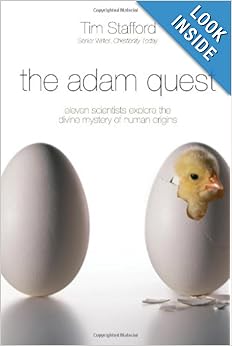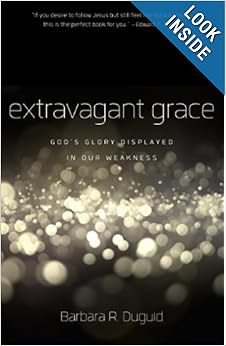Every Thursday morning, I have breakfast with two of my best friends. A couple of weeks ago, my friend Brad ordered Eggs Benedict. If you've never had Eggs Benedict, you are missing out. English muffins, eggs, and Canadian bacon topped with velvety Hollandaise sauce. On this particular morning, however, his breakfast had a hair in it. He was immediately disgusted and requested an entirely new breakfast. Such a small thing contaminating an otherwise perfectly delectable plate of food.
Sometimes debates are like that. We offer sound advice based on solid reasoning, which stands beautifully on its own, but then we drop in a hair. We say something that adds nothing to the conversation, but rather takes away from it.
Yesterday, I linked to an article,
Monogamy is Unnatural, by Matt Walsh. Let me first state that I enjoy reading Walsh's blog. I generally agree with him and find him to be an engaging, thoughtful writer and thinker. I also specifically liked this article because Walsh addressed what is an increasingly important issue in our society, that of the sanctity of marriage.
Walsh received an email from a college professor who was also in an "open marriage" that belittled Walsh's education, intellect, and arguments. He wrote, "It
was obvious to me before you ever stated it that you are a man of little
education and limited intelligence." He went on to further belittle
Walsh and present his view that polygamy is the only natural, healthy perspective.
Walsh used his blog as a forum to respond to this professor. Contrary to the beliefs of the professor, however, Walsh is witty and intelligent. Much of Walsh's response was good and stated assertively. He elegantly argued that monogamy is supernatural and that, as humans, we transcend baser animal instincts. He countered the professors assertion that men are "biologically fitted for polygamy" with the reminder that men are rational beings, which should make us capable of attaining higher things. He continued to layer rational argument upon rational argument about why monogamy is a thing of beauty for humans. Then he added the sauce: "If you won 600 million dollars in the lottery, would you go out the next
day and break into cars to steal the change from the cup holders?
That’s what sleeping around is like when you’ve already found a woman
who will pledge her life and her entire being to you for the remainder
of her existence." This is breathtakingly true. He then included this flourish, "If you aren’t strong enough to stay committed to one person, that’s your
business. Walk down that path of loneliness and confusion, but you
can’t drag the entire institution of marriage along with you.
Personally, I like circles but I hate squares. Can I subvert the laws of
geometry and suddenly decide that all squares shall henceforth be
circles? No, because geometry is geometry, despite my strange
square-hating quirks. Similarly, marriage is marriage, no matter how
many college professors insist otherwise."
The middle of Walsh's essay is a thing of rhetorical beauty in my opinion. He compellingly defended monogamous marriage rationally against the machinations of an angry professor.
But...BUT...there's the beginning and the end. Let's start with the beginning. The professor went to great lengths to [try to] demonstrate how intelligent he was and how unintelligent Walsh apparently is. Employing rhetorical irony, Walsh opened his response with three paragraphs to the professor wittily and intelligently acknowledging the professors assertions. Of course, the rhetorical irony is that Walsh is indeed intelligent and his response showed the absurdity of the professors claims to the contrary. Some may argue that he came across too strongly in this section. I personally do not believe he did because his point is made effectively. As I shared last night, the professor also clearly demonstrated why it is dangerous to argue from the position of "I have a lot of formal education, so I must be right." I fight this temptation regularly.
But then there's that hair. In the penultimate paragraph, Walsh wrote "All that said, I must agree with one of your assertions: I only respond to imbeciles." Ugh. The essay would have been much better had he left that one sentence out.
The reason I am thinking so much about this today is that a friend of mine from church read the post last night and wrote,
"I honestly don't know
why you posted this, although he was treated poorly by whomever
originally sent that email to him, he responds in kind with insults and
mocking, which not only do I not care for, but isn't very demonstrative
of grace at all. I mean good for him for trying to defend his stance,
but I don't think he really did that anymore than he already had, and
just attacked the other guy in an annoyingly similar smug tone that the
professor started with. The only thing that I liked is that he agreed
that monogamy isn't natural, which does add to its beauty."
I spent time praying about her thoughts this morning and my own. As I thought it through, I think Walsh was over the top. His second to last sentence was a hair in the hollandaise. As I wrestled through this, I was reminded of many stories in the Bible where sarcasm and rhetorical flourish were employed. Elijah did it with the prophets of Baal. Isaiah did it when confronting those who would construct idols out of wood. Jesus did with the Pharisees. Paul did with the Judaizers.
And yet, there are repeated exhortations to be gentle with our speech. In 1 Peter 3:15, Peter tells his audience that they
are to be prepared to make a defense, but to do so with "gentleness and
respect." In Titus 2:2-3, Paul wrote, "speak evil of no one, to avoid
quarreling, to be gentle, and to show perfect courtesy toward all
people. For we ourselves were once foolish, disobedient, led astray,
slaves to various passions and pleasures, passing our days in malice and
envy, hated by others and hating one another."
In other words, we must guard our tongues, which we see in many other places in scripture as well. I asked my Centurions friends about this and one of the faculty said, "it is better to err on the side of respect." Indeed.
If nothing else, Walsh's post was a reminder of where I am at on my continued journey of guarding my tongue. I have written about sarcasm in the past in
2009 and
2010. Just a few days ago, I wrote a post entitled
"Truth without Winsomeness", dealing with similar concerns. As you can see, this remains an ongoing growth area for me. So, Brit, thanks for helping me to continue to think through this issue.
 The first thing you are going to do is go to Christian Audio before February 1st and download the free ESV Bible. Okay, you don't have to download this one; I'm just trying to help out because it is a great translation and its free. It is truly free, not just a gimmick. It is only available until January 31 so get on it if you are interested. Put the Bible on your iPod, iPhone, iPad, cellphone, whatever. You could certainly find an audio Bible of whatever sort you would like.
The first thing you are going to do is go to Christian Audio before February 1st and download the free ESV Bible. Okay, you don't have to download this one; I'm just trying to help out because it is a great translation and its free. It is truly free, not just a gimmick. It is only available until January 31 so get on it if you are interested. Put the Bible on your iPod, iPhone, iPad, cellphone, whatever. You could certainly find an audio Bible of whatever sort you would like. 










